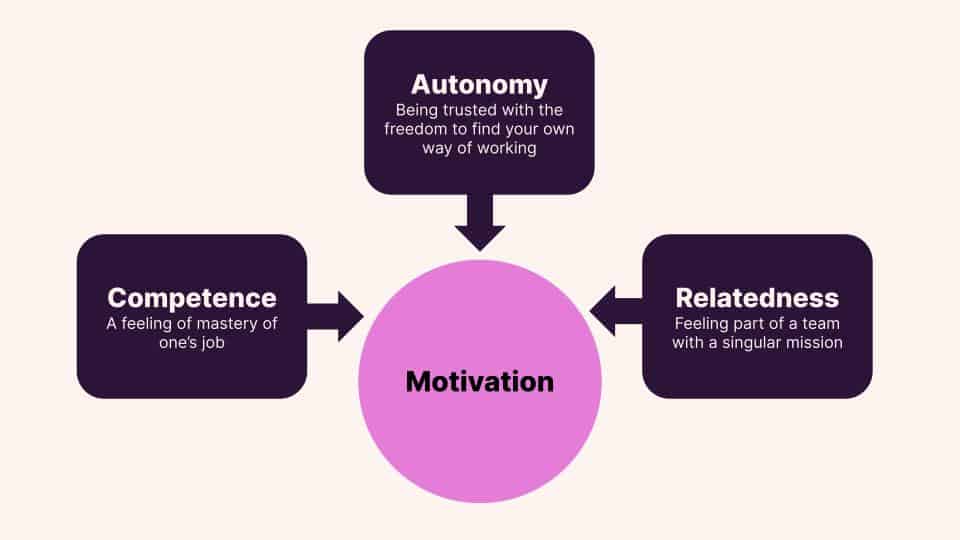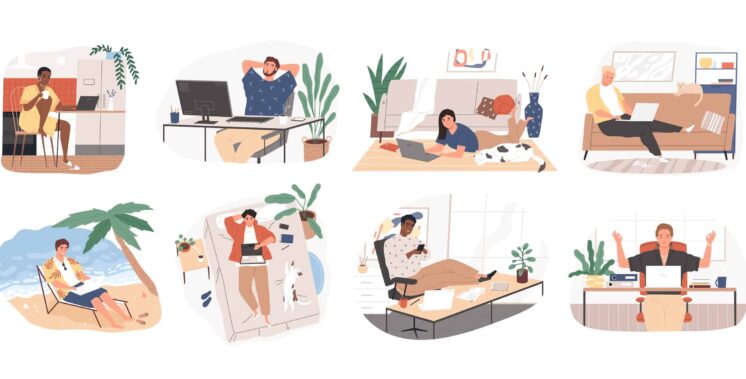At Toggl, we’ve been living and touting the benefits of working from anywhere since 2014. Not just that, but we’ve also made a big bet on the future of remote work by creating tools that enable distributed teams to be more productive and successful.
Working remotely has worked out well for us, too. Hundreds of thousands of users now track time on our app daily, and our team has gone from about a dozen to almost 100 since 2014.
Working from anywhere in the world also means working at any time. A 9-5 day doesn’t make sense when your globally distributed team is spread out across five different continents. Now we’re experimenting with total work hours, period.
We’re trying out something called RAFT– Results and Accountability First at Toggl. It’s about giving people complete control when it comes to how long they spend at work. It’s about focusing on results rather than hours worked.
What is RAFT at Toggl?
RAFT is about results over effort, hours, or passion.
By emphasizing results, we aim to give everyone on the team the freedom to figure out the rest. How long you work, when and where you work, and even how hard you work is totally up to the individual—as long as you’re doing good work.
You’re free to run errands on a Monday, work a 4-day week, or wrap up undone work on a Sunday night. If this is what helps you get results, we’re not going to stand in the way.
Toggl
These freedoms are different from company benefits, like paid time off. You don’t have to ask for permission from your manager or feel guilty because you produced the same results in less time. The only condition is that you can’t slow down other team members who rely on you.
We track time to protect against overwork
Time and again, we see tech companies that offer unlimited paid time off, which is, of course, unlimited only in theory.
You can have all the vacation days in the world, but they’re useless if you can’t use ‘em because you need to hit a certain target by the end of the quarter.
At Toggl we defend against overwork with time tracking. Time tracking allows us to understand how long things take, improve our planning, and also spot inconsistencies in how work is allocated.
We don’t think anyone should have to work 40 hours a week to get results. If it’s constantly taking someone 60 hours to do something that someone else might be able to finish in 30 hours, we’d rather put our money on the latter. Overtime is not a virtue.
We’re results-oriented
We don’t believe in getting the work done at the cost of your mental and physical health and wellbeing.
Time tracking helps us find this balance. But once again, it’s up to the individual to decide on the process that works for them.
Why RAFT?
Self-determination theory
I’m particularly bullish on this approach because I see how closely it’s linked to a fundamental theory about what keeps humans motivated, productive, and happy—Self-determination theory.
Self-determination theory states that we have three basic needs in life in order to feel fulfilled: competence, autonomy, and relatedness.

How RAFT promotes autonomy
As a team, we already do a lot in relation to the first two. RAFT is the final piece in the puzzle for the third need, autonomy.
- Competence: A feeling of mastery of one’s job
We have a unique hiring process that allows us to identify and attract the top talent for each position in the company, both in terms of skills and cultural fit.
We’re also strongly committed to the continuous development of the team. All Togglers get a hefty budget to attend conferences and develop their skills professionally.
- Relatedness: Feeling part of a team with a singular mission
Fostering team spirit can be challenging when you’re working remotely, so Toggl has a tradition of multiple in-person meetups a year. Before the pandemic, Togglers could expect to participate in up to four such meetings per year.
- Autonomy: Being trusted with the freedom to find your own way of working.
Freedom, trust, and ownership play a central role in our team culture. These values form the basis of how we work at Toggl: remotely and asynchronously, oriented towards results rather than hours worked (RAFT).
It’s also closely linked to our stance against employee surveillance. We believe in meaningful output, not input.
How do you RAFT?
This is one of the most common questions that I get from Togglers.
Our team is spread out across the whole world, with people of diverse backgrounds and cultures. In some cases, it can be hard to define exactly how RAFT translates into action.
In others, it’s hard to shake old attitudes towards work. Sometimes people don’t always feel safe to experiment with work time to find ways to use RAFT to optimize their own work day.
For example, a team member might not feel comfortable taking off for two hours in the middle of a Wednesday—even when they lack the energy to do good work.
These are two things we do at Toggl to ensure RAFT is successful.
1. We promote values over rules.
I do not believe that rule-based organizations can successfully implement a RAFT setup because this type of freedom can’t be defined in a rulebook. Instead, we encourage Togglers to ask themselves these questions.
• How will my decision affect my team? Am I acting in my team’s best interest?
• How will my decision affect my performance and standing as a Toggler? Am I acting in my own best professional interest?
The key is trust and ownership, two crucial values at Toggl.
The trust goes both ways. Managers can and do trust that Togglers will work and act in the best interest of the team. Togglers who are trusted feel empowered to find the best way to work, and can in turn trust that the managers won’t micromanage or breathe down their necks.
When you require eight hours of attendance, that’s what you get, not eight hours of productivity. Unless you’re paying your employees to warm their seats, inflexible working hours are bad for business and work-life balance.
Toggl
We also empower our people not just with trust but also trusted knowledge, including all the context needed to do their jobs well. All Togglers have full access to company metrics and financials.
2. We measure results.
Finally, you need to have a way to measure results—both short and long-term. Keep in mind that you don’t need to go crazy with this. At Toggl, we find that aligning and setting quarterly goals gives us a good enough framework to do this.
The idea behind RAFT is that results come from productive work, not attendance. And that we should be rewarding the former, not the latter.
When you require eight hours of attendance, that’s what you get, not eight hours of productivity. Unless you’re paying your employees to warm their seats, inflexible working hours are bad for business and work-life balance.
With RAFT, we’re creating a mutually beneficial workspace that motivates our high-performing team members to do good work–and we all reap the rewards.
@_sergeh has spent several years as a Java developer, doing large infrastructure applications. Tired of everything associated with big enterprise, he joined Toggl.


